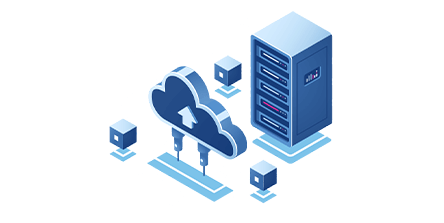Cloud Solutions
Ceylon Linux offers Private, Public and Hybrid Cloud Solutions to many businesses around the world with a premier 24×7 support. We have experience in delivering cloud solutions on many Open Source Cloud Platforms. We help businesses to migrate to the cloud infrastructure and to reap the true benefits of the cloud.










Top benefits of cloud computing
Cloud computing is a big shift from the traditional way businesses are used to thinking about IT resources. Here are some common reasons organizations are turning to cloud computing services:

Cost
Cloud computing eliminates the capital expense of buying hardware and software and setting up and running on-site datacenters—the racks of servers, the round-the-clock electricity for power and cooling, and the IT experts for managing the infrastructure. It adds up fast.

Speed
Most cloud computing services are provided self service and on demand, so even vast amounts of computing resources can be provisioned in minutes, typically with just a few mouse clicks, giving businesses a lot of flexibility and taking the pressure off capacity planning.

Global scale
The benefits of cloud computing services include the ability to scale elastically. That means delivering and distributing the right amount of IT resources—for example, more or less computing power, storage, bandwidth—right when they’re needed, and from the right geographic location.

Productivity
On-site datacenters typically require a lot of “racking and stacking”—hardware setup, software patching, and other time-consuming IT management chores. Cloud computing removes the need for many of these tasks, so IT teams can spend time on achieving more important business goals.

Performance
The biggest cloud computing services run on a worldwide network of secure datacenters, regularly upgraded to the latest generation of fast and efficient computing hardware. This offers several benefits over a single corporate datacenter, including reduced network latency for applications and greater economies of scale.

Reliability
Cloud computing makes data backup, disaster recovery, and business continuity easier and less expensive because data can be mirrored at multiple redundant sites on the cloud provider’s network.
Security
Many cloud providers offer a broad set of policies, technologies, and controls that strengthen your security posture overall, helping protect your data, apps, and infrastructure from potential threats.
Types of cloud computing
Not all clouds are the same and not one type of cloud computing is right for everyone. Several different models, types, and services have evolved to help offer the right solution for your needs.
You need to determine the type of cloud deployment, or cloud computing architecture, that your cloud services will be implemented on. There are three different ways to deploy cloud services: on a public cloud, private cloud, or hybrid cloud.

Public Cloud
Public clouds are owned and operated by third-party cloud service providers, which deliver their computing resources, like servers and storage, over the Internet. Amazon AWS, Google Cloud and Microsoft Azure are public clouds. With a public cloud, all hardware, software, and other supporting infrastructure is owned and managed by the cloud provider.

Private Cloud
A private cloud refers to cloud computing resources used exclusively by a single business or organization. A private cloud can be physically located on the company’s on-site datacenter. Some companies also pay third-party service providers to host their private cloud. A private cloud is one in which the services and infrastructure are maintained on a private network.

Hybrid Cloud
Hybrid clouds combine public and private clouds, bound together by technology that allows data and applications to be shared between them. By allowing data and applications to move between private and public clouds, a hybrid cloud gives your business greater flexibility, more deployment options, and helps optimize your infrastructure, security, and compliance.







